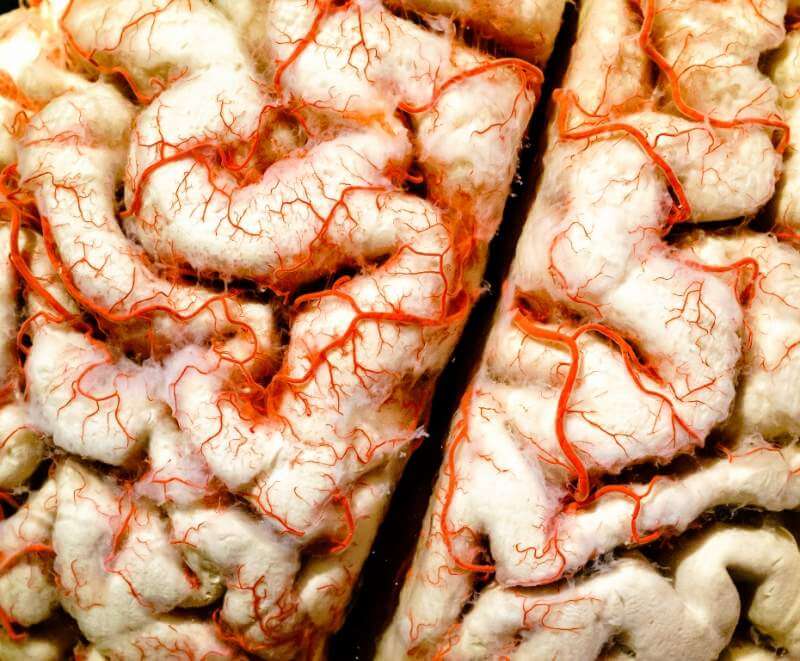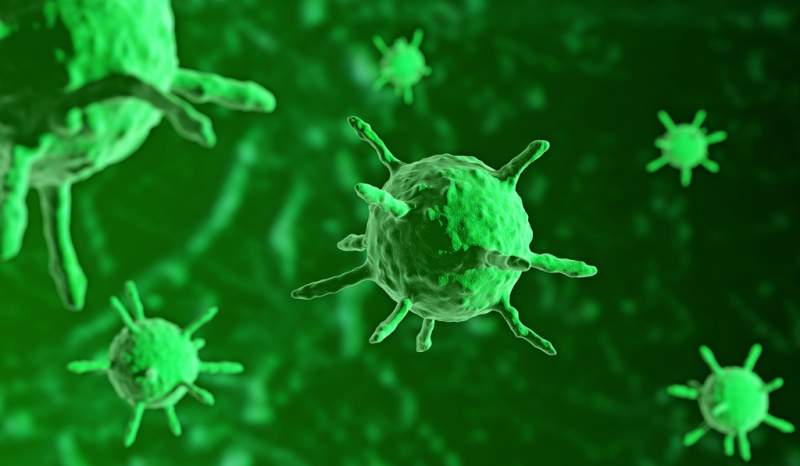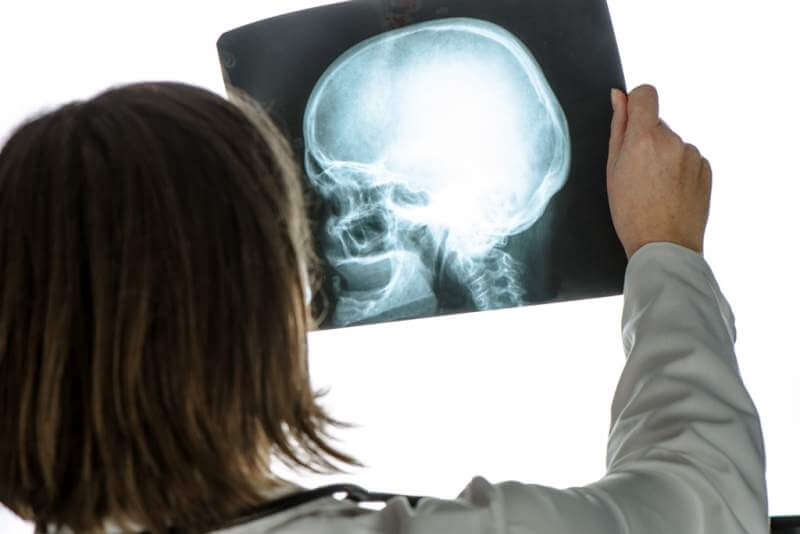If a person is experiencing a decline and/or loss of memory, reasoning, judgment, behavior, language and other mental abilities that are not a normal part of aging, it means that they are suffering from dementia. According to the World Health Organization (WHO), 47.5 million people worldwide have dementia, with an estimated increase to 75.6 million by 2030. If the symptoms progressively worsen over time, then there’s no doubt dementia is present. While there are many causes of dementia, some of them are reversible and others aren’t, but they all result from dysfunction of a person’s cerebral cortex.
Alzheimer’s disease
 By far the most common cause of dementia is Alzheimer’s disease. It is partly hereditary, and it accounts for about half of all dementia cases. Alzheimer’s disease occurs because abnormal protein deposits in the brain destroy cells in the areas of the brain that control memory and mental functions. If people have lower-than-normal levels of brain chemicals that control important brain functions, dementia is likely to happen. No known cures for Alzheimer’s disease have been found, and the disease is irreversible.
By far the most common cause of dementia is Alzheimer’s disease. It is partly hereditary, and it accounts for about half of all dementia cases. Alzheimer’s disease occurs because abnormal protein deposits in the brain destroy cells in the areas of the brain that control memory and mental functions. If people have lower-than-normal levels of brain chemicals that control important brain functions, dementia is likely to happen. No known cures for Alzheimer’s disease have been found, and the disease is irreversible.
Vascular dementia
 Accounting for as many as 40% of dementia cases, vascular dementia is the second most common cause of dementia. Hardening of arteries in the brain, i.e. atherosclerosis is the cause of vascular dementia, because deposits of fat and dead cells form on the inside of arteries, which causes blood flow blockage. Consequently, they cause multiple strokes, or interrupt the blood flow to the brain which leads to brain damage. Diabetes, heart disease, high blood pressure, and high cholesterol, are all closely connected to dementia. That’s why it’s essential to perform regular checkups and control the previously mentioned conditions if it turns out you’re suffering from them, because the treatment can slow the progress of vascular dementia.
Accounting for as many as 40% of dementia cases, vascular dementia is the second most common cause of dementia. Hardening of arteries in the brain, i.e. atherosclerosis is the cause of vascular dementia, because deposits of fat and dead cells form on the inside of arteries, which causes blood flow blockage. Consequently, they cause multiple strokes, or interrupt the blood flow to the brain which leads to brain damage. Diabetes, heart disease, high blood pressure, and high cholesterol, are all closely connected to dementia. That’s why it’s essential to perform regular checkups and control the previously mentioned conditions if it turns out you’re suffering from them, because the treatment can slow the progress of vascular dementia.
Creutzfeldt-Jakob disease
 Young and middle-aged adults are most likely to be affected by Creutzfeldt-Jakob disease. This rare disease is caused by infectious agents called prions that invade and kill brain cells, leading to behavior changes and memory loss. The disease tends to progress rapidly and is fatal.
Young and middle-aged adults are most likely to be affected by Creutzfeldt-Jakob disease. This rare disease is caused by infectious agents called prions that invade and kill brain cells, leading to behavior changes and memory loss. The disease tends to progress rapidly and is fatal.
Dementia with Lewy bodies
 If a person has abnormal microscopic deposits of Lewy bodies − the amount of protein that destroys nerve cells – the deposits will most likely cause symptoms like tremor and muscle rigidity. Dementia similar to the one in Alzheimer’s disease is another potential symptom. Concentration, attention and thinking are predominantly affected by dementia with Lewy bodies, while language and memory stay mildly affected. This type of dementia, just as Alzheimer’s disease, is not reversible, but the medicine that benefits Alzheimer’s disease sufferers is also known to do well to people who suffer from dementia with Lewy bodies. If you notice your loved one has been experiencing difficulties with thinking and attention, and isn’t able to take care of themselves, long-term dementia care facilities are the best places for them. They’ll have all the necessary attention, care and great company, so you won’t have to worry if they’ve had their meal, if they bathe or if they’re safe.
If a person has abnormal microscopic deposits of Lewy bodies − the amount of protein that destroys nerve cells – the deposits will most likely cause symptoms like tremor and muscle rigidity. Dementia similar to the one in Alzheimer’s disease is another potential symptom. Concentration, attention and thinking are predominantly affected by dementia with Lewy bodies, while language and memory stay mildly affected. This type of dementia, just as Alzheimer’s disease, is not reversible, but the medicine that benefits Alzheimer’s disease sufferers is also known to do well to people who suffer from dementia with Lewy bodies. If you notice your loved one has been experiencing difficulties with thinking and attention, and isn’t able to take care of themselves, long-term dementia care facilities are the best places for them. They’ll have all the necessary attention, care and great company, so you won’t have to worry if they’ve had their meal, if they bathe or if they’re safe.
Huntington’s disease
 Huntington’s disease is inherited, and it affects brain cells that control movement and thinking. At the late stages of this disease dementia will most likely occur, resulting in personality changes, and affecting judgement. Speech, memory, and reasoning are also likely to be affected by this disease.
Huntington’s disease is inherited, and it affects brain cells that control movement and thinking. At the late stages of this disease dementia will most likely occur, resulting in personality changes, and affecting judgement. Speech, memory, and reasoning are also likely to be affected by this disease.
Parkinson’s disease
 Parkinson’s disease affects your limbs and speech ability. Limb stiffness, shaking at rest and difficulty speaking are the main symptoms of Parkinson’s disease. Judgement, speech, reasoning and memory are most likely to be affected by this disease, which can but doesn’t have to lead to dementia.
Parkinson’s disease affects your limbs and speech ability. Limb stiffness, shaking at rest and difficulty speaking are the main symptoms of Parkinson’s disease. Judgement, speech, reasoning and memory are most likely to be affected by this disease, which can but doesn’t have to lead to dementia.
Infections
 Dementia in treatable conditions such as infections or head injuries may be reversible even if the underlying disease isn’t. Meningitis and other infections of brain structure can be the primary source of dementia. Syphilis and HIV can also result in dementia, because they affect the brain permanently in the later stages of diseases.
Dementia in treatable conditions such as infections or head injuries may be reversible even if the underlying disease isn’t. Meningitis and other infections of brain structure can be the primary source of dementia. Syphilis and HIV can also result in dementia, because they affect the brain permanently in the later stages of diseases.
Head injury
 Brain damage caused by motor vehicle wrecks, falls, injuries from assaults such as gunshot wounds, and even boxing without protective gear can all cause dementia. Brain cells will become severely damaged due to those injuries, which will consequently lead to dementia. However, once the underlying condition is treated dementia is likely to be treated as well because it wasn’t caused by an untreatable disease.
Brain damage caused by motor vehicle wrecks, falls, injuries from assaults such as gunshot wounds, and even boxing without protective gear can all cause dementia. Brain cells will become severely damaged due to those injuries, which will consequently lead to dementia. However, once the underlying condition is treated dementia is likely to be treated as well because it wasn’t caused by an untreatable disease.
Poor oxygenation (hypoxia)
 One of the reasons a person can suffer from dementia is the lack of oxygen in their blood. Considering the blood brings oxygen to the brain cells, the lack of thereof will eventually cause dementia, because the brain cells won’t get enough oxygen to feed on. Emphysema and pneumonia are the most common lung diseases that cause hypoxia. These two diseases limit the transfer of oxygen from the airways of the lungs to the blood. If you’re a smoker, you’re at much higher risk of suffering from emphysema and potentially from dementia.
One of the reasons a person can suffer from dementia is the lack of oxygen in their blood. Considering the blood brings oxygen to the brain cells, the lack of thereof will eventually cause dementia, because the brain cells won’t get enough oxygen to feed on. Emphysema and pneumonia are the most common lung diseases that cause hypoxia. These two diseases limit the transfer of oxygen from the airways of the lungs to the blood. If you’re a smoker, you’re at much higher risk of suffering from emphysema and potentially from dementia.
Metabolic disorders
 Dementia can also be caused by diseases of kidneys, pancreas and liver. The reason being the disruption of the balance of salts and other chemicals in the blood. Considering these changes in blood levels happen very quickly, person’s level of consciousness becomes affected. This condition is also known as delirium, but even though the person isn’t able to think well, much like the one with dementia, treatment of the underlying disease is potentially reversible. On the other hand, if the disease persists, brain cells tend to die, which results in dementia.
Dementia can also be caused by diseases of kidneys, pancreas and liver. The reason being the disruption of the balance of salts and other chemicals in the blood. Considering these changes in blood levels happen very quickly, person’s level of consciousness becomes affected. This condition is also known as delirium, but even though the person isn’t able to think well, much like the one with dementia, treatment of the underlying disease is potentially reversible. On the other hand, if the disease persists, brain cells tend to die, which results in dementia.
Dementia is a condition which affects reasoning, memory, and other mental abilities of a person, but their motor skills as well. While dementia is irreversible and incurable disease, you can still slow down its occurrence by regularly going to the doctor, checking your cholesterol and blood pressure levels, and stay away from dangerous activities that can cause temporary dementia.
Maintaining a healthy lifestyle, avoiding substance abuse and trying to eat well is also a good way to slow down the process of aging and delay dementia. Staying away from possible infections by practicing safe sex is also a good way to avoid syphilis and HIV which can potentially cause dementia, so always be careful and do your best to live a healthy life.
